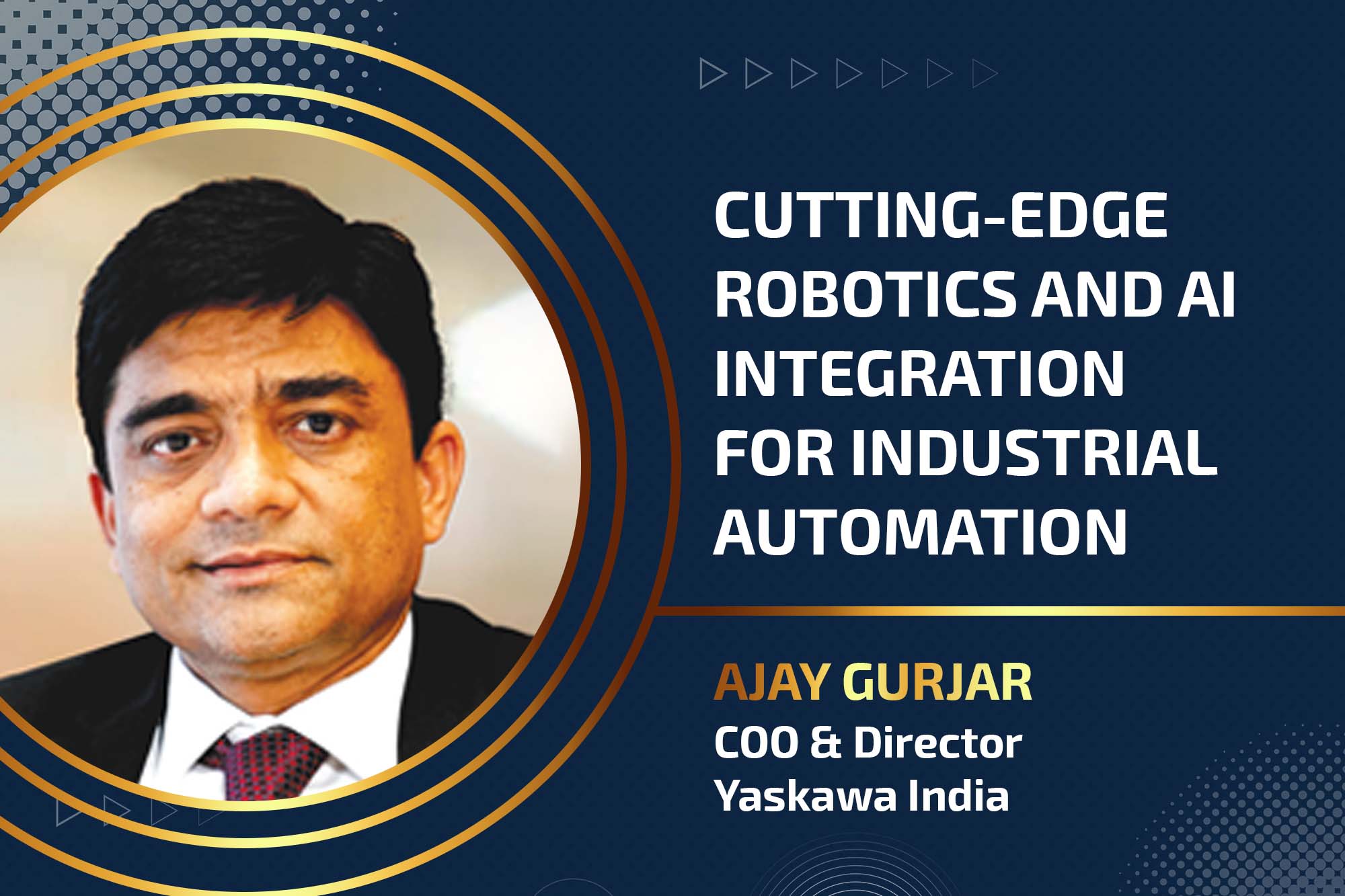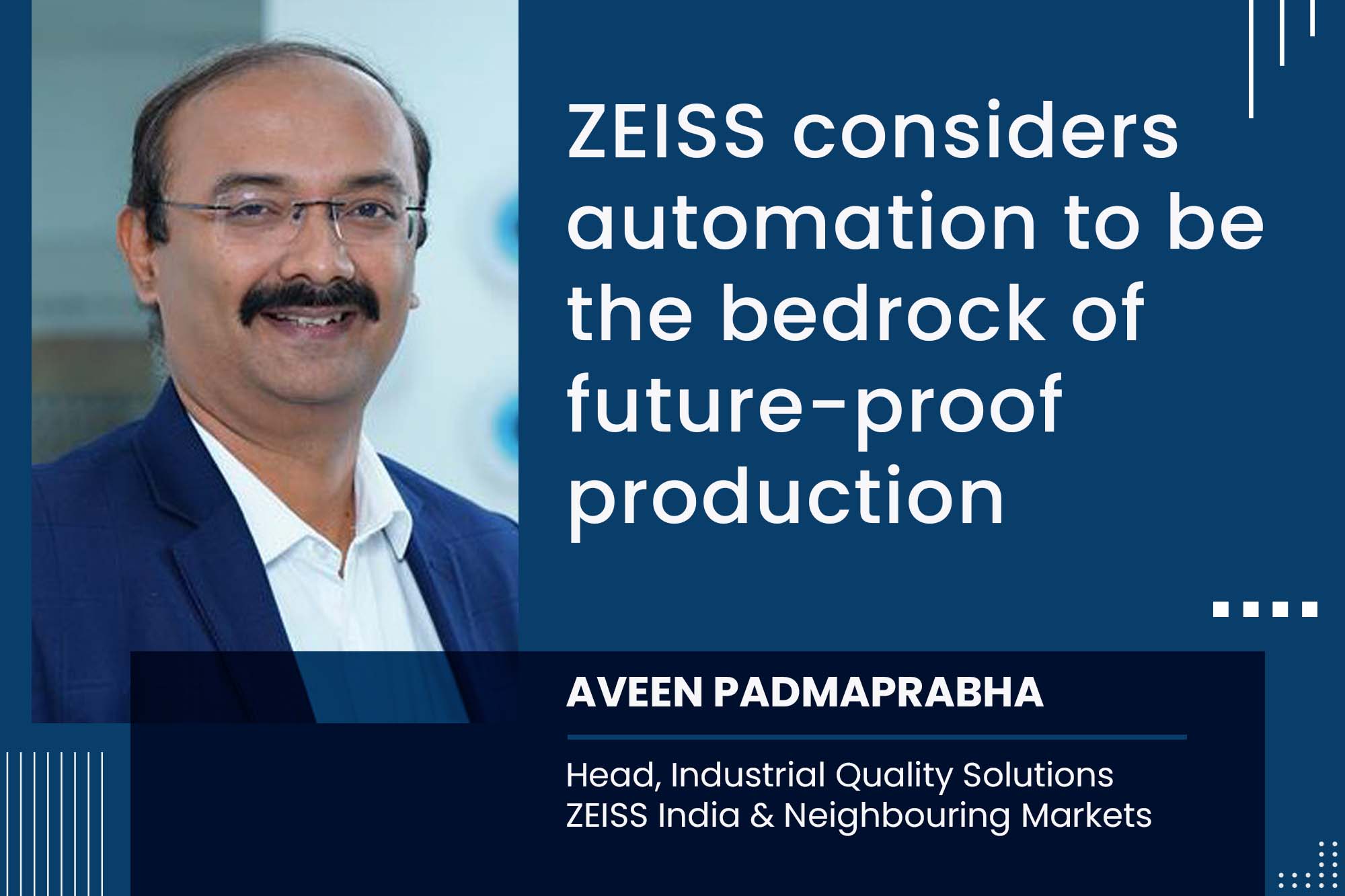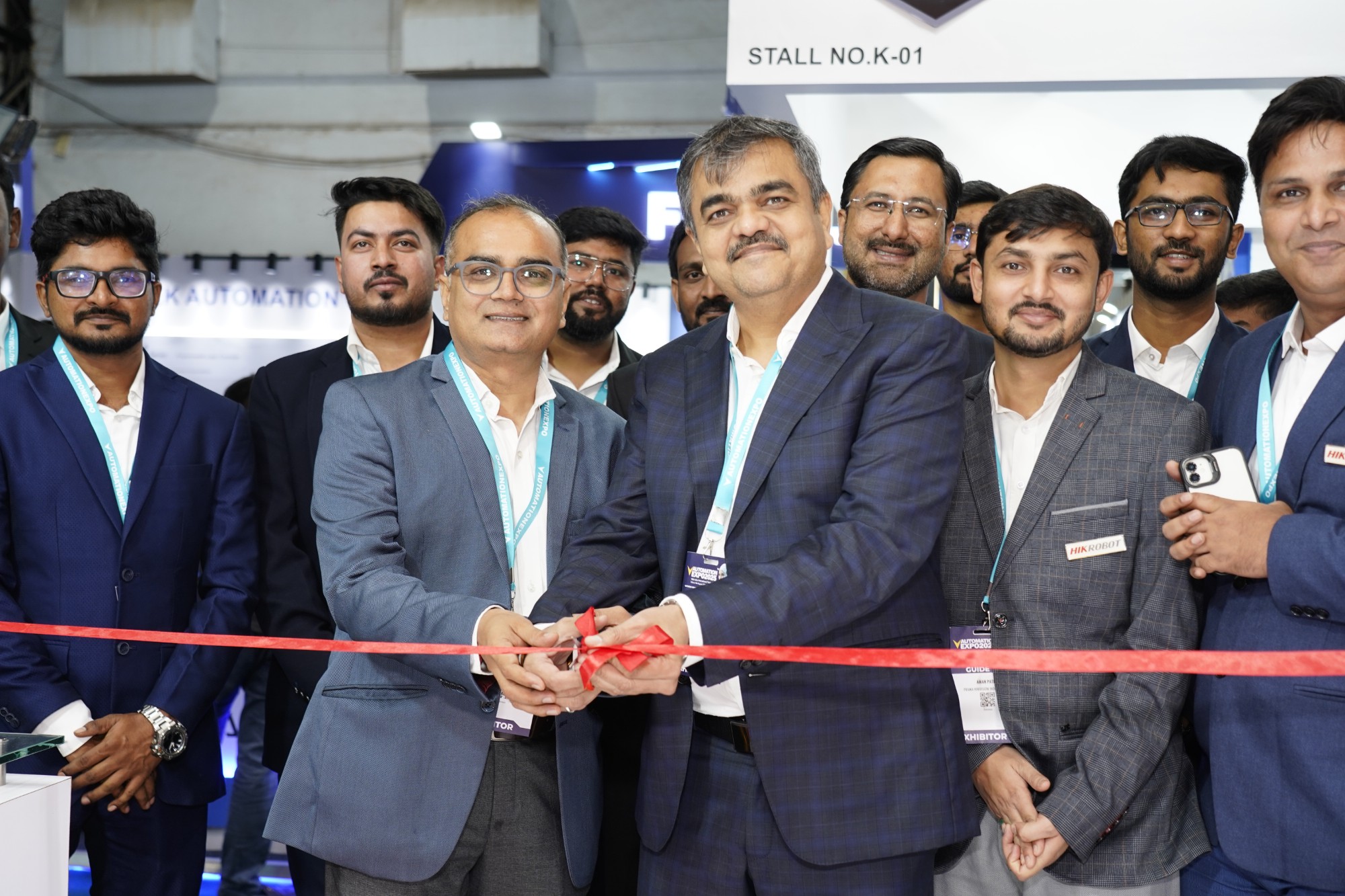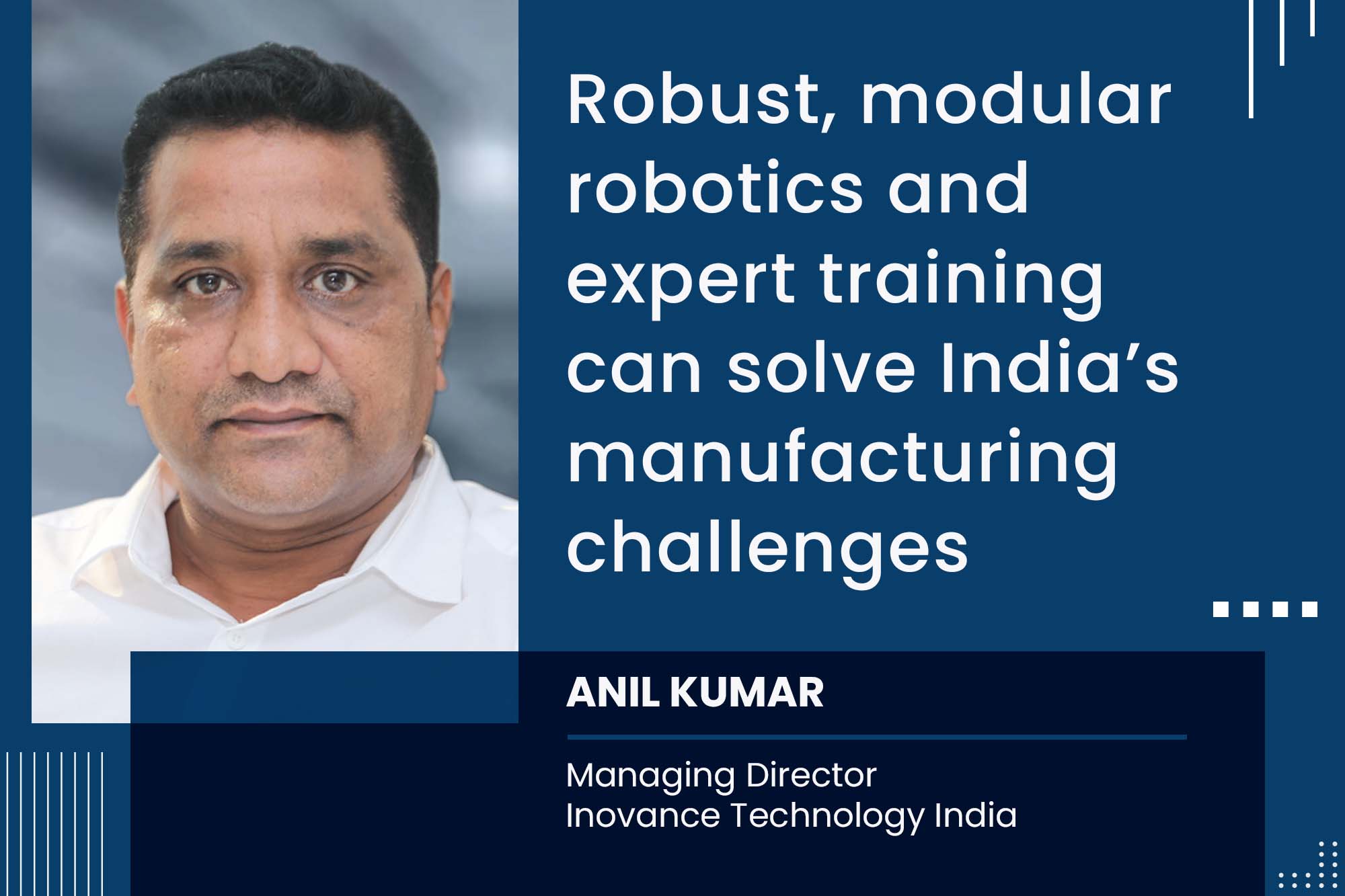Cutting-edge robotics and AI integration for industrial automation
By OEM Update Editorial June 18, 2024 5:47 pm IST
According to Ajay Gurjar, the COO and director of Yaskawa India, the company envisions driving the advancement of Indian manufacturing by offering cutting-edge automation solutions. Our focus on innovation, sustainability, and customer-centric practices will lead the way in industrial automation and robotics.
Industrial robots are playing a crucial role in factory automation. Yaskawa Electric Corporation is a prominent global player in the automation field renowned for its advanced industrial robots and cutting-edge technologies. Established in 1915 and headquartered in Kitakyushu, Japan, Yaskawa has a rich history of innovation and excellence in industrial automation.
Yaskawa overview
Yaskawa is one of the largest manufacturers of industrial robots globally, operating under the Motoman brand. These robots are used in various industries in applications such as welding, assembly, packaging, painting, and material handling. Yaskawa robots are known for their precision, reliability, and efficiency.
The company is a leader in motion control technology, offering a wide range of products like servo drives, machine controllers, and AC drives. These products are essential for controlling the movement and operation of machinery in manufacturing processes, ensuring high performance and accuracy. It provides integrated mechatronics solutions that combine mechanical engineering with electronics. These solutions include advanced robotics, control systems, and software, enabling seamless automation and improved productivity.
Yaskawa’s robotic systems are designed for flexibility and adaptability. They offer a variety of robot models to meet specific needs, from small, precise robots for delicate tasks to powerful robots for heavy-duty applications. The robots are used in the automotive, electronics, food and beverage, and pharmaceutical industries.
Cutting-edge technologies
Yaskawa has developed a range of collaborative robots, or cobots, designed to work safely alongside human workers. These robots have advanced sensors and safety features to prevent accidents, allowing for close human-robot interaction.
Moreover, Yaskawa is incorporating artificial intelligence (AI) and machine learning into its robotic systems to enhance their capabilities. AI-driven robots can learn from their environment, adapt to changes, and optimise their performance over time, leading to more efficient and intelligent automation solutions. Further, the company uses digital twin technology to create virtual models of its robotic systems. These digital twins can be used for simulation, testing, and optimisation, allowing manufacturers to predict and improve the performance of their automation systems before deployment.

Automation solutions
Yaskawa’s automation solutions are integrated with IIoT technologies, enabling real-time data collection, monitoring, and analysis. This connectivity allows for predictive maintenance, improved operational efficiency, and better decision-making through data-driven insights. For advanced motion control systems, Yaskawa continues to innovate in motion control, offering high-precision servo motors and drives – essential for complex manufacturing processes. These systems ensure precise control of speed, position, and torque, enhancing the performance of automated machinery.
Further, Yaskawa has a global presence, with offices, manufacturing facilities, and service centres. This extensive network ensures that customers receive timely support, training, and maintenance services, maximising the uptime and efficiency of their automation systems.
Robotic automation trends
The latest trends in robotic automation are happening due to technology advancements and evolving industry needs.
Collaborative robots
Cobots are designed to operate safely alongside humans, thereby enhancing flexibility and productivity in manufacturing environments. They offer ease of operation, often programmable through intuitive interfaces, making them accessible for various applications. Furthermore, Autonomous Mobile Robots (AMRs) carry increased mobility and navigate independently within factories and warehouses, transporting materials and goods efficiently. Using sensors and AI, these robots execute dynamic path planning, navigating complex environments and avoiding obstacles.
AL and ML
Artificial Intelligence (AI) and machine learning enable robots to learn from data, adapt to changes, and optimise their performance, leading to Smart automation. Moreover, AI algorithms can predict equipment failures before they occur, reducing downtime and maintenance costs. Internet of Things (IoT) integration allows robots to communicate and coordinate with other machines and systems. Additionally, IoT facilitates real-time monitoring and analysis, improving decision-making and operational efficiency.
Sensing and vision systems
Advanced sensing and vision systems enhance robots’ ability to perceive their surroundings, enabling them to execute complex tasks with greater precision and accuracy. The vision systems are used for inspection and quality control, ensuring high standards in manufacturing processes. Flexible automation entails modern robots that are easily reprogrammed and repurposed for different tasks, providing greater flexibility in production lines. Moreover, the flexible automation systems can be scaled up or down based on production needs.
Digital twins
Digital twins involve creating virtual replicas of physical robots and systems, allowing for simulation, testing, and optimization before actual implementation. Additionally, digital twins enable continuous monitoring and assessment of performance, leading to improved efficiency and risk reduction.
These trends are shaping the future of robotic automation, making it Smart, more efficient, and more adaptable to various industrial and commercial applications.
Robotics demand for industrial applications
The demand for industrial robotics in India is experiencing robust growth, driven by various factors and stimuli. This trend will continue as industries increasingly adopt automation to enhance productivity and competitiveness.
Current demand drivers
Drivers for robotics include the growth of the manufacturing sector, spurred by initiatives like Make in India, which is boosting manufacturing activities, leading to higher adoption of automation and robotics. The automotive industry significantly utilises robots for welding, painting, and assembly, contributing to industrial robot demand. Additionally, the rise in electronics manufacturing is encouraging the demand for precision assembly robots. Rising labour costs and the demand for consistent quality are pushing manufacturers towards robotic automation. Furthermore, supportive government policies and incentives for technology adoption encourage the use of robotics.
Future growth stimuli
Several factors will drive future growth in robotics. Technological advancements in AI, machine learning, and IoT are making robots smarter and more versatile, expanding their range of applications. The COVID-19 pandemic has accelerated the need for automation to maintain business continuity and reduce human intervention. Investments in smart factories and infrastructure will drive demand for advanced robotic solutions. Increased foreign direct investment (FDI) in manufacturing will bring advanced robotics technologies and practices to India. Additionally, government and private sector initiatives focused on developing a skilled workforce in robotics and automation will facilitate widespread adoption.

Market growth
Market growth projections for the industrial robotics market in India indicate a compound annual growth rate (CAGR) of approximately 13-15% over the next five years. Significant expansion in the automotive, electronics, pharmaceuticals, and logistics sectors is bound to happen . The adoption of collaborative robots (cobots) is rapidly increasing among small and medium-sized enterprises (SMEs) due to their flexibility and affordability. Additionally, substantial growth is anticipated in industrial hubs such as Maharashtra, Gujarat, Tamil Nadu, and Karnataka.
The demand for industrial robotics in India is on a strong growth path, driven by the need for increased efficiency, quality, and productivity in manufacturing. Government initiatives, technological advancements, and evolving economic dynamics are key stimuli propelling this growth. The market will expand significantly, with diverse applications across various sectors and regions.
Yaskawa India vision
Yaskawa India aims to empower industries with advanced automation solutions, contributing to the growth and modernisation of Indian manufacturing. Yaskawa India is committed to leading the way in industrial automation and robotics through innovation, customer focus, sustainable practices, workforce development, market expansion, and embracing Industry 4.0.
Cookie Consent
We use cookies to personalize your experience. By continuing to visit this website you agree to our Terms & Conditions, Privacy Policy and Cookie Policy.
















